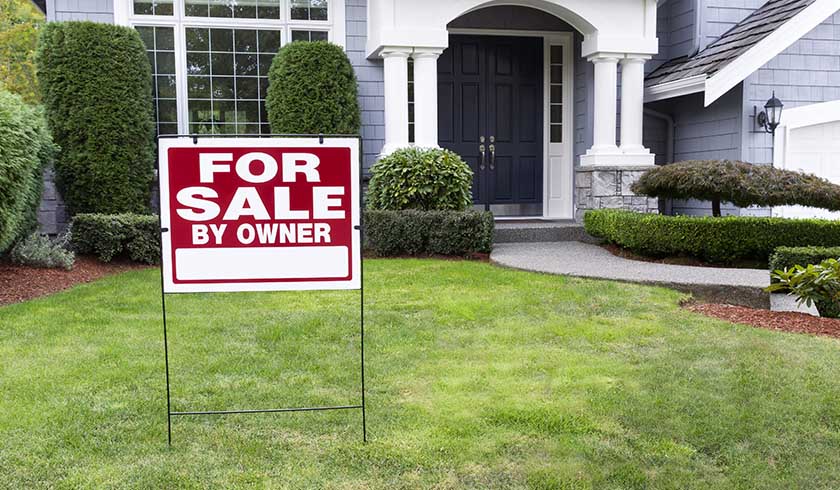Common mistakes to avoid when selling your property
Ready to put your home or investment property on the market? Here are the common mistakes to avoid when selling your property.

Just like buying a property, selling your home or investment property can be a stressful affair. It’s no wonder that most homeowners or property owners want the selling process to go as smoothly as possible from start to finish.
But this is not the only end goal. Aside from a quick sale, you would also want to fetch the right price for your home.
However, in many cases, some properties can stay on the market for months, with very little to show for the time and effort invested in the selling process. In some instances, sellers are forced to sell their property below their desired sale price.
To avoid this worst-case scenario, here are some costly mistakes you need to avoid to get the most out of selling your property:
1. Working with the wrong agent
It’s widely advised to get an agent when selling a property. But don’t get just any agent; find a good one.
If you hire an inexperienced or incompetent agent, it can be just as damaging as selling your property on your own. The wrong sales agent might give you bad pricing advice, run a not-so-far-reaching marketing campaign, or will be unable to pursue truly interested potential buyers. With this said, a bad agent will only get in the way of a sales process.
Take the time to compare your options and hire an agent who is not only skilled but will also have your best interest in mind. A good agent can make all the difference.
2. Overcapitalisation
Before you carry out any repairs or renovations on your property, it’s a good idea to talk to your real estate agent first. This is because if you push on without any grounded advice, you can go overboard with the work done only to find out that you will not recoup your investment come sale time.
This will depend on the standards within your property’s neighbourhood, which is why it’s advised to choose a real estate agent who is familiar with the local market. But if your upgrades go above and beyond comparable properties in your local area, buyers may not be able to afford your higher sale price.
3. Overpricing your property
A common mistake people make when selling a property is to overprice their property.
While it feels like a smart move, setting the sale price too high on your property can backfire on you. It can reduce the number of interested buyers, who may gravitate towards similar properties that are currently on the market but have a lower price tag.
And this further hurt your chances of making a sale. If you don’t have a good number of interested buyers, your home can sit in the market for an extended period. If your house is in the market for too long, buyers may begin to think something is wrong with your property.
A good real estate agent should have sufficient local property market knowledge to help you choose an appropriate price for your property. If you’re selling a property on your own, experts recommend that sellers research comparable properties in their area to give them an idea of how much their properties are actually worth.
In some instances, it might be more advantageous to set a lower price for your property than what you think it is actually worth. In a seller’s market, this can stoke competition between buyers, and you may end up getting a higher offer.
4. Lacking and inefficient marketing of your property
Simply put, you can’t sell a secret. Marketing is very important when it comes to selling a property. You can have the best property on the block, but if no one knows it’s up for grabs, don’t expect to get any offers.
Use a variety of advertising methods to help entice buyers. You can put ads in newspapers, signage outside your property, use word-of-mouth advertising, and internet listings to drum up buyer interest. After all, the more buyers that see your ads, the higher your chances of achieving an optimal price.
However, the number of advertising platforms should not be your only focus. The quality of marketing materials should also be taken into consideration. A good write-up, as well as clear and crisp photos that showcase your property, can go a long way in enticing buyers. If possible, it’s advisable to add videos to enhance your listings online.
5. Not preparing your property for sale
The adage “first impressions matter” also applies to selling properties. If you don’t present your property in its possible light when it’s time for the open house, it can have a significant impact on the final sale price. An unkempt property also has the potential to scare off potential buyers.
You can stack the odds in your favour by taking the time and effort to properly prepare your home. This could involve adding a fresh coat of paint, fixing the walls, or upgrading the plumbing system.
But, as mentioned, it’s best to consult with your real estate agent before you go too crazy with the repairs.
6. Being inflexible
On a basic level, real estate is a game of negotiation. It’s an industry where those who know how to play the negotiation game, such as professional selling and buying agents, come to the fore.
Maybe your heart is set on achieving a specific price for your property and sellers are entitled to stick to whatever number they believe their property deserves.
However, if the market is indicating a lower price point, it pays to be flexible when it’s time to sell. Ignoring the feedback that the market and your agent are giving you can lead to an unsold property.
Keeping an open mind when evaluating offers can help the sales process to move forward. You can also try negotiating and make counteroffers to come up with a win-win situation for you and your buyer.
7. Not accounting for hidden fees
Selling a home is also a numbers game. It’s easy to overlook some of the involved costs in the sale process, especially when your eyes are set on the profit that can come from an offer.
However, these expenses can easily add up to thousands of dollars, so it’s important to account for all these costs to have a realistic estimate of how much profit you will pocket.
Here are some of the expenses you need to consider:
- Agents commission
- Capital gains tax
- Conveyancer or legal fees
- Council rates
- Lender’s fees
- Property-styling expenses
- Advertising costs
8. Not reading the fine print
After you’ve gone through the process of preparing, marketing, and showing your home, it’s easy to let your guard down. After all, you’re in the home stretch of the sale. What else could go wrong?
But the reality of it is that most vendors get careless with the legal and financial side of selling their property. Some sellers may not bother reading all the fine print on their contract of sale. However, this is one of the worst mistakes you can make.
Without meaning to, you could agree to finance additional repairs or surrender appliances you didn’t mean to. Bear in mind that once you have signed the bottom line, you are legally required to abide by its terms and conditions.
Be sure that you read through the full contract thoroughly, going through it with a solicitor or your real estate agent before you sign anything.
Smart Property Investment provides Australian property investors with must-have insight, strategies, and real-life experiences to help guide successful buying and selling decisions in the Australian property market.
Tune in to our podcasts covering a variety of topics related to the real estate market. You can also follow Smart Property Investment on social media: Facebook, Twitter and LinkedIn.


